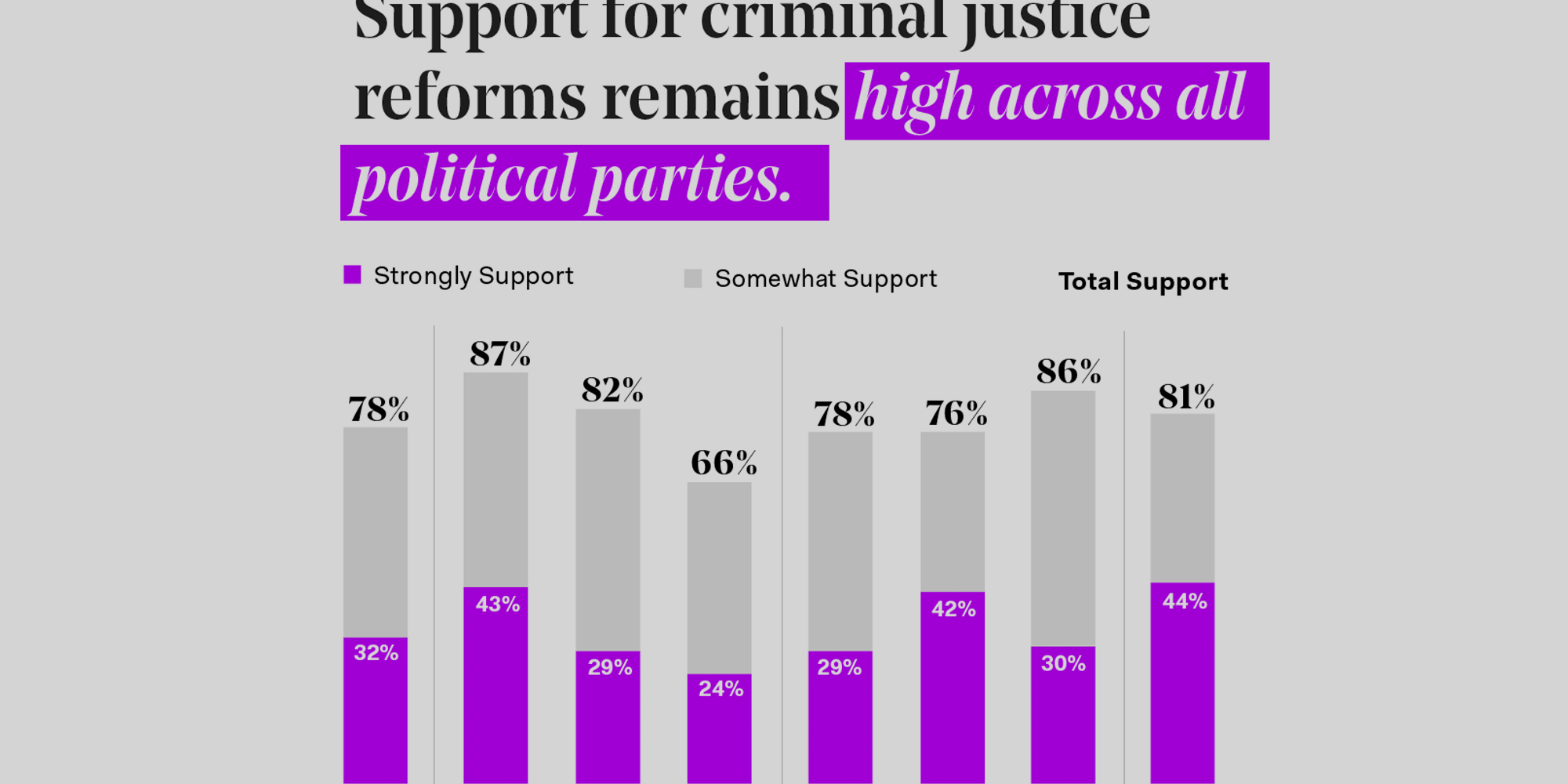![]()
Unwavering Support for Criminal Justice Reform: Insights from Recent Polling
Recent polling conducted by BSG on behalf of FWD.us has revealed a remarkable and enduring level of support for criminal justice reform among the American public. The data not only highlights the widespread backing for reform but also indicates a strong preference for candidates advocating policies aimed at reducing incarceration rates. Let’s delve into the key insights from this polling data and explore the implications for criminal justice reform in the United States.
High Levels of Support Across Political Spectrum
The polling data unequivocally demonstrates that 78% of likely voters (LVs) support criminal justice reform. This support transcends political affiliations, with 2 in 3 Republicans, 87% of Democrats, and 82% of Independents expressing their support. This bipartisan consensus underscores the significance of criminal justice reform as a unifying issue that resonates with a vast majority of Americans.
Particularly noteworthy is the strong support for reducing prison and jail populations, with Democrats and Black voters showing particularly robust backing for this aspect of reform. This support has remained steadfast, showing little change from 2022, indicating a sustained desire among voters for elected officials to build upon existing reforms and continue advancing towards a more equitable and effective criminal justice system.
Public Sentiment and Specific Policy Changes
The survey aimed to gauge public perception regarding the functionality of the criminal justice system, attitudes towards candidates supporting reform policies, and overall sentiment regarding crime. The findings reveal overwhelming support for various specific policy changes such as sentencing reforms, parole reforms, and initiatives like the First Step Act.
One of the most significant revelations is the increasing support for candidates who champion criminal justice reform. Compared to 2022, more voters now express their likelihood to vote for candidates supporting reform, indicating that criminal justice reform has evolved from being a potentially divisive issue to one that can garner widespread support and enhance candidates’ appeal across various demographics.
Addressing Mass Incarceration and Reform Initiatives
The data also sheds light on public perceptions regarding mass incarceration and its impact on social issues. A substantial majority of voters believe that mass incarceration contributes to social problems such as homelessness, drug use, and overdoses. This sentiment underscores the growing awareness of the need to address systemic issues within the criminal justice system and prioritize reform efforts aimed at reducing incarceration rates.
Furthermore, the survey indicates strong support for policy proposals aimed at reducing incarceration rates, including expanding earned time credits, Second Look resentencing, ending pretrial detention for nonviolent charges, and addressing drug and mental health issues as public health concerns. These policy proposals have garnered significant bipartisan support, indicating a shared recognition of the need for comprehensive reform measures.
Looking Ahead: Protecting and Advancing Reform Efforts
The enduring support for criminal justice reform highlighted in this polling data sends a clear message to policymakers and candidates. It emphasizes the importance of prioritizing reform initiatives, protecting existing reforms such as the First Step Act, and exploring further opportunities to safely reduce the prison population.
As we move forward, it is crucial for elected officials and policymakers to heed the voices of the American public and work towards meaningful and impactful criminal justice reform. The data from this polling serves as a powerful mandate for continued progress and collaboration across political lines to achieve a more just, equitable, and effective criminal justice system for all.
In conclusion, the insights gleaned from this recent polling reaffirm the unwavering support for criminal justice reform among Americans and underscore the potential for meaningful change in shaping the future of our criminal justice system.













